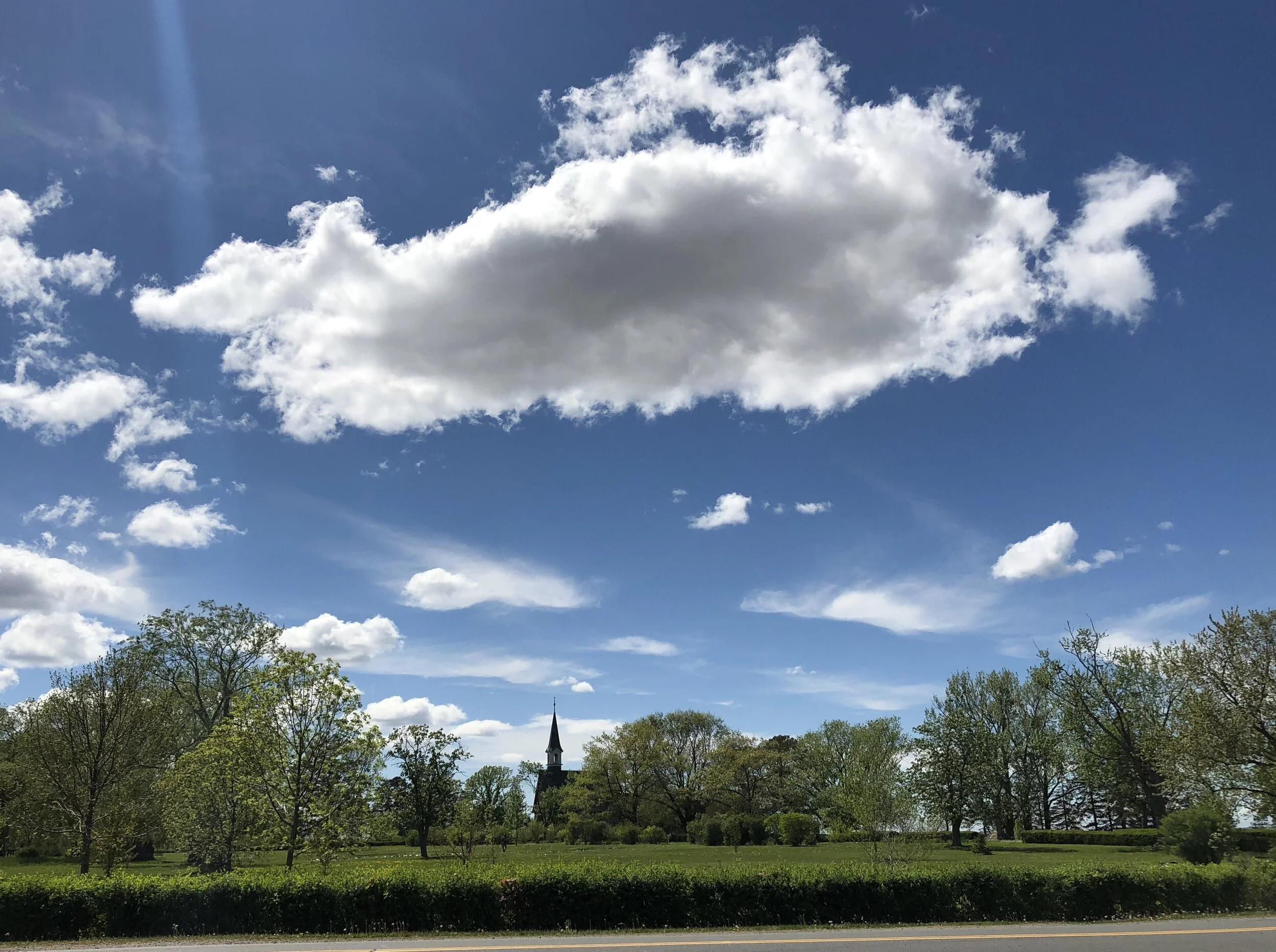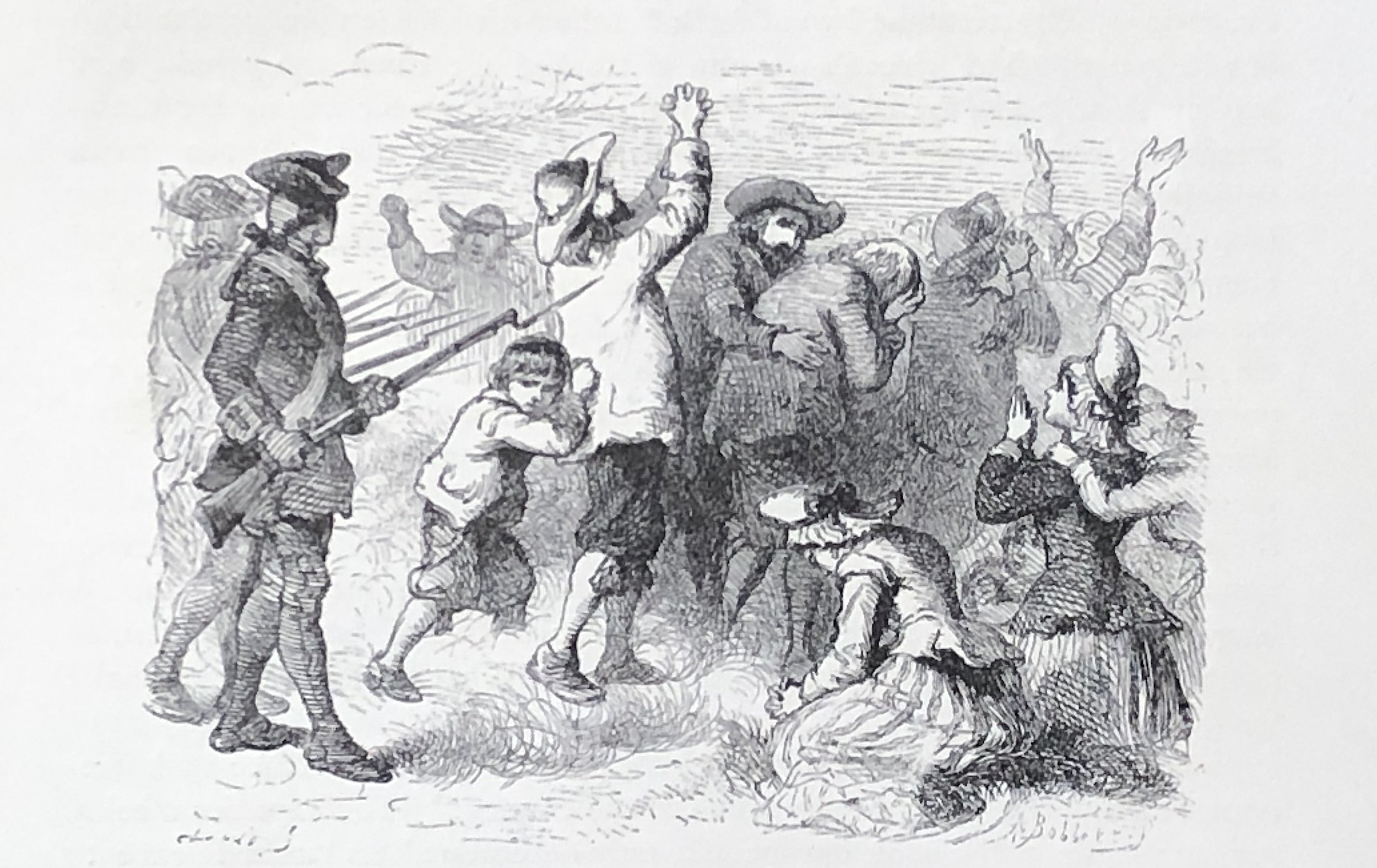NEw & exPanded edition – from Nimbus Publishing
Available now at Your Local indie Bookshop or Chapters/Indigo/Coles store, and online from Chapters/Indigo, Amazon.ca & Amazon.com
Order the Kindle (Canada link / US link) or the Kobo Ebook
The tragic story of one of the great crimes of history, the brutal deportation of French-speaking settlers from today’s Maritime Provinces of Canada – and the incredible survival and resilience of the Acadians and the Cajuns
The Deportation of the Acadians – one of the darkest events in Canadian history – is replete with the drama of war, politics, and untold human suffering. Starting in 1755, thousands of French-speaking settlers were expelled from their homes on Canada's East Coast by a tyrannical British governor with the support of New England troops. While many Acadians returned from exile to establish new communities that thrive today, others made their way to Louisiana and founded the vibrant Cajun culture known around the world.
Now, in a revised and updated edition of the book published to mark the 250th anniversary of first deportations, award-winning author Dean Jobb revisits his dramatic and compelling account of "Le grand dérangement," immortalized in Longfellow's famous poem, “Evangeline.” Jobb brings a cast of characters to life so vividly that the reader is immediately captured by their stories. The richness of detail is remarkable. The quality of writing is cinematic. With thirty images to complement the storytelling, The Acadian Saga is a bridge across the centuries for the descendants of a founding people of this nation, whose courage and resourcefulness still resonate in modern-day Acadie and Louisiana.
“Exposes the horrific conditions Acadians suffered in exile, and shows how deportees and their descendants survived to found today’s thriving Acadian and Cajun cultures.” – Veritas Acadie
“A dramatic and compelling account of ‘Le grand derangement.’’’ – SaltWire
MORE THAN 10,000 men, women and children were removed from their homeland at gunpoint and sent into exile. They were stripped of the farms that had nurtured and sustained their families for four generations. Their homes and most of their possessions were burned. Five thousand of these unfortunate people, maybe more, died of disease and deprivation or perished in shipwrecks.
The destitute survivors were scattered along the east coast of North America or wound up in the port cities of England and France; some sought refuge in the jungles of South America or as far away as the windswept Falkland Islands. Family and friends were separated, never to be reunited. Children were taken from their parents to work as servants or apprentices. An entire generation knew nothing but the squalor of refugee camps and prisons and the uncertainty of a nomadic life.
An early engraving shows soldiers marching Acadian men and boys to the deportation ships (Author Collection)
Banner image above: The Acadian Memorial Church at the Grand-Pré National Historic Site (Author Photo)
The scene of this crime was the northeastern corner of North America, what is now the Canadian provinces of Nova Scotia, New Brunswick and Prince Edward Island. The victims were the descendants of the region’s French settlers, who called themselves Acadians and their homeland Acadie. They were proud, stubborn, and self-reliant, their communities tight-knit through bonds of family and marriage. Geography and history conspired to trap the Acadians in the crossfire as France and Britain fought for supremacy over North America. Time and again Acadie changed hands, finally falling under British rule in 1710. By 1755, with France and Britain on the verge of fighting yet another war, acting governor Charles Lawrence demanded that the Acadians swear allegiance to the British. He would accept nothing less than complete loyalty. When the Acadians asked to be considered neutrals, to be exempted from fighting their old masters to defend their new ones, Lawrence had the pretext he needed to banish them from their homeland.
“Impressive … a strong, seamless narrative … a worthwhile read.” — The Miramichi Reader
The deportation was a human catastrophe on a scale unprecedented in Canada and one of the darkest chapters in the nation’s history. It was calculated to destroy a people and wipe out a distinct culture, but it failed. The Acadians were too tough and too resilient. Their ordeal became the catalyst for a cultural revival and a resurgence of national pride. Today, there are an estimated three million Acadian descendants worldwide. Acadians who escaped deportation and those who returned established new communities in Atlantic Canada, where they now number close to 300,000. Thousands of deportees made their way to Louisiana, where the name Acadian was shortened to Cajun and the new surroundings forged a distinct new culture. More than a half-million Americans, most of them in Louisiana and eastern Texas, are descendants of these refugees.
THIS IS A STORY filled with heroes and villains as well as ordinary men and women caught up in extraordinary events. Deportation and exile did not destroy the Acadians as a people. They survived against incredible odds. They preserved a vibrant culture, a zest for life, and a deep respect for their heritage. This is a story of the triumph of the human spirit in the face of cruelty and unimaginable hardship.
Reviews
“Impressive … pulling all of the threads of the deportations into one story, Jobb manages to weave them together into a strong, seamless narrative …. With a mix of archival research and interviews with Acadians and Cajuns in the present, The Acadian Saga is a prime example of taking history and telling a good, factual story … a worthwhile read.” – The Miramichi Reader
“A dramatic and compelling account of ‘Le grand derangement.’’’ – SaltWire
Advance Praise for The Acadian sAGA
Ceremony at the Acadian Cross near Grand-Pré, Nova Scotia in 2005, marking the 250th anniversary of the first deportations (Author Photo)
“A wonderfully told story that should appeal to anyone interested in the 17th and 18th century history of North America .… The text has a clarity and a richness which adds to the copious research Jobb has compiled into an interesting narrative … an enlightening story of our triumph over evil. Vivre l’Acadie!” – Warren Perrin, chair of the Acadian Museum of Louisiana and co-author of Acadie Then and Now: A People’s History.
“Acadie has found a great storyteller in Dean Jobb. The Acadian Saga is clear-eyed, energetic, and written with a journalist’s care for salvaging the personal from the rush of events. The effect is powerful.” – Jonathan Fowler, Professor of Archaeology, Saint Mary’s University
“Dean Jobb’s decades of experience as a first-rate journalist and researcher are on full display in this gripping and informative book. Navigating the complexities of Acadian history with honesty and care, The Acadian Saga weaves together enlightening interviews with an eclectic cast of characters and richly detailed historical reconstructions. A welcome addition to the growing body of literature helping to bring clarity to this often misunderstood chapter of North American history.” – Tyler LeBlanc, author of Acadian Driftwood: One Family and the Great Expulsion
The Memorial Church and grounds at Grand-Pré in the 1920s. The village was Acadie’s largest community when the expulsions began in 1755 (Author Collection)
Originally published as The Acadians: A People’s Story of Exile and Triumph by John Wiley & Sons (U.S. edition title: The Cajuns: A People’s Story of Exile and Triumph)
Shortlisted for the Richardson Nonfiction Award and the City of Dartmouth Book Award
Praise for The Acadians / The Cajuns
“Jobb … marries a historian’s fidelity to research and detail with a journalist’s ability to tell a story with verve, colour and attention to the human elements beneath the historical record. Popular history just doesn’t get much better than this.” – Winnipeg Free Press
“[A] lively, popular account.” – The Globe and Mail
“Highly authoritative … engaging, well-written and evocative … vivid descriptions bring people and places to life.” – Canada’s History magazine
An artist’s depiction of the burning of an Acadian village on New Brunswick’s Saint John River in 1758. (Painting by Thomas Davies/Wikipedia)
“An easily read and historically accurate account of those gloomy events of 250 years ago. … [Jobb] tells the story through the eyes of real people, including the scholars but also the everyday descendants of the Acadians in both Canada and Louisiana.” – Daily Advertiser, Lafayette, Louisiana
“Well paced and impassioned … The action slides back and forth from the founding days of Acadie to its revived, vibrant reality along Canada’s East Coast and south into Louisiana. Through this graceful merging of past and present, Jobb highlights the strong, persevering spirit that has characterized the Acadian culture to this day.” – Atlantic Books Today
“Accessible and engaging … gives a sense of immediacy to a 250-year-old story and makes it resonate with the reader of today …. Even those who have read a good deal about the Acadians will learn something new from this book.” – Saint John Telegraph Journal
“A celebration of the spirit of the Acadians. It’s about people who overcame horrendous, brutal treatment because of their resilience and will to survive … the best book on the subject we may ever see.” – Charlottetown Guardian
“Jobb does an excellent job of making [the Acadians’] suffering and struggle real and demonstrating the pride their ancestors still feel for their heritage.” – Chronicle Herald
“Sheds new light on one of the darkest periods in the history of the Maritime provinces.” – Cape Breton Post






